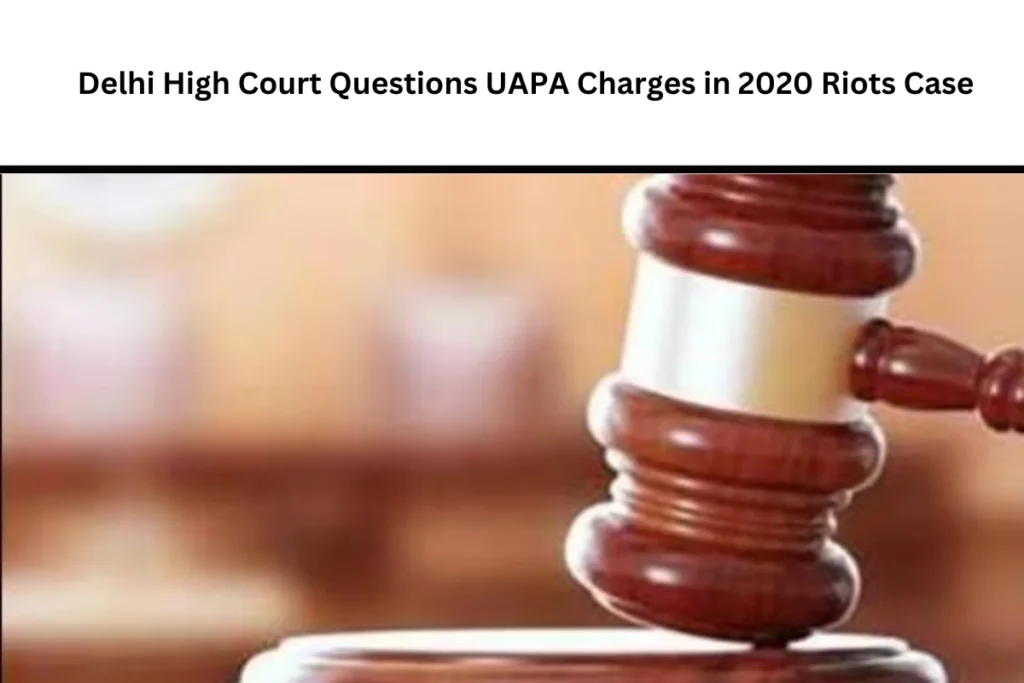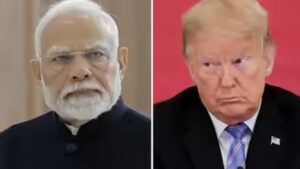
The Delhi High Court on Wednesday raised questions about applying the Unlawful Activities Prevention Act (UAPA) in the 2020 Delhi riots case. The court asked if setting up anti-CAA protest sites alone justified the stringent charges. It stressed that intent to commit a terror act is crucial under UAPA provisions.
The Delhi Police previously argued that the riots were part of a calculated conspiracy. They alleged it was planned by forces hostile to India and executed with “ruthless intensity.” A bench of Justices Navin Chawla and Shailender Kaur raised these concerns while hearing bail pleas from student activists, including Sharjeel Imam and Umar Khalid.
Special Public Prosecutor (SPP) Amit Prasad opposed the bail applications. He presented WhatsApp group chats as evidence, claiming these revealed a conspiracy to organize protest sites linked to the riots. The bench asked whether merely organizing protest sites could attract UAPA charges or if a clear link to violence was necessary.
Violence in Northeast Delhi
The riots erupted on February 23, 2020, amid protests over the Citizenship Amendment Act (CAA). Clashes left 53 people dead and hundreds injured. Activists booked under UAPA sought bail after being denied it by a lower court. Prasad argued that these protests were part of a preplanned conspiracy disguised as organic demonstrations.
Selective Accusations
The court also questioned the police for selectively naming accused individuals based on WhatsApp chats. Prasad presented chats and a PowerPoint showing the preparation for violence, including damaging cameras and mobilizing with weapons.
The accused denied involvement, calling the charges politically motivated. The court will continue hearing the case on January 9, as Delhi Police plan to oppose the bail further.
for more updates follow ANN MEDIA on facebook , X , Instagram and Linkedin







